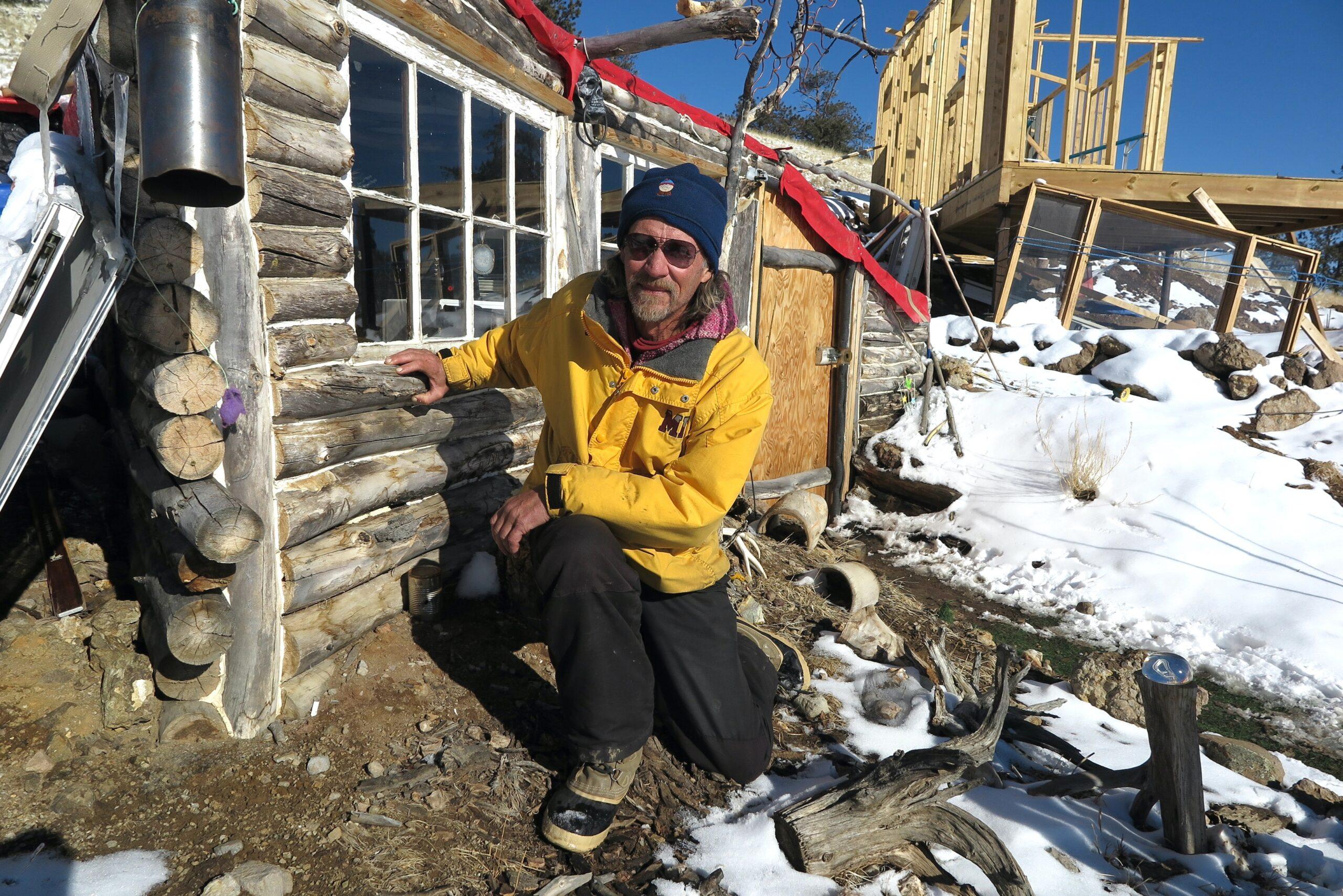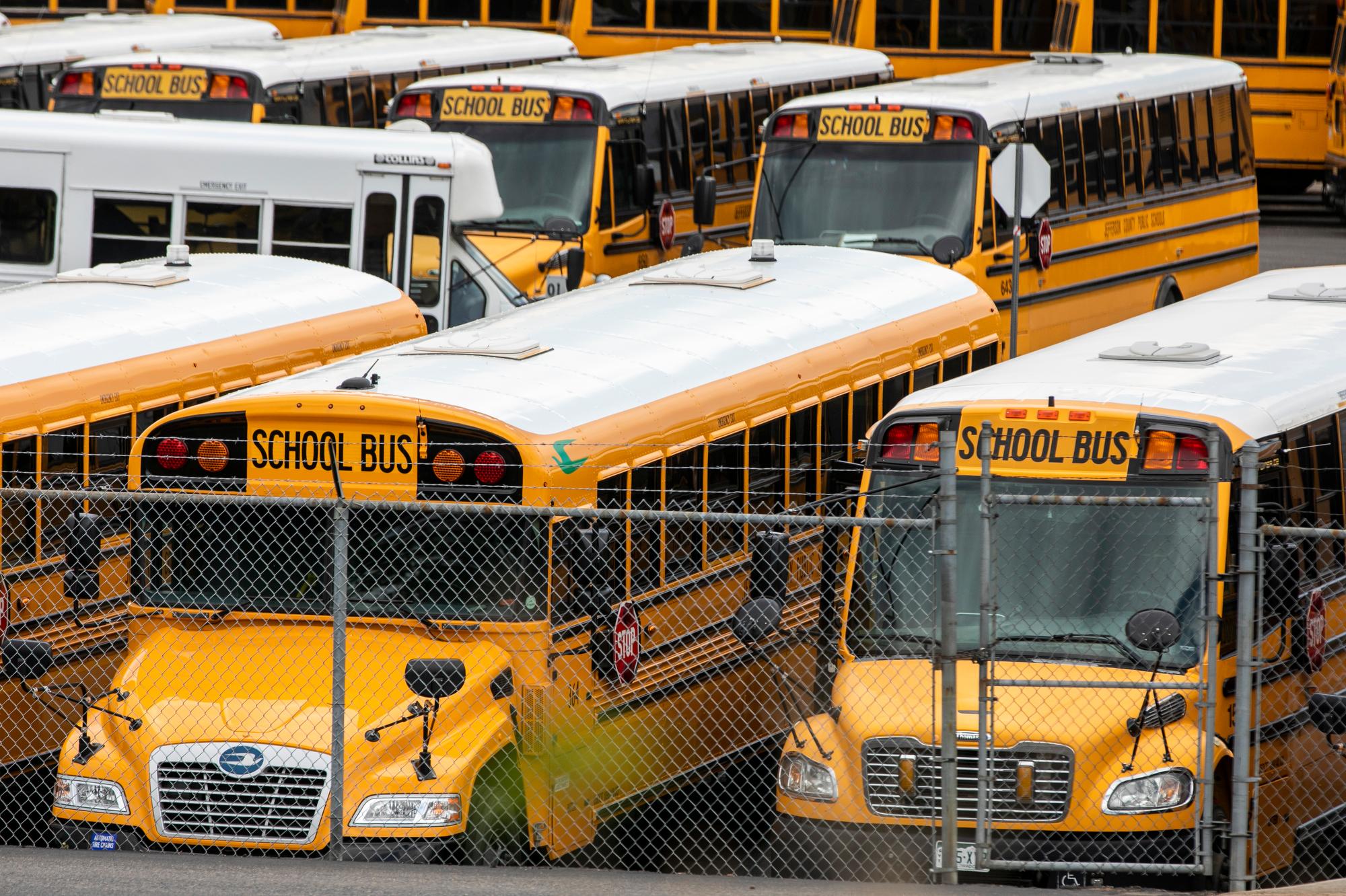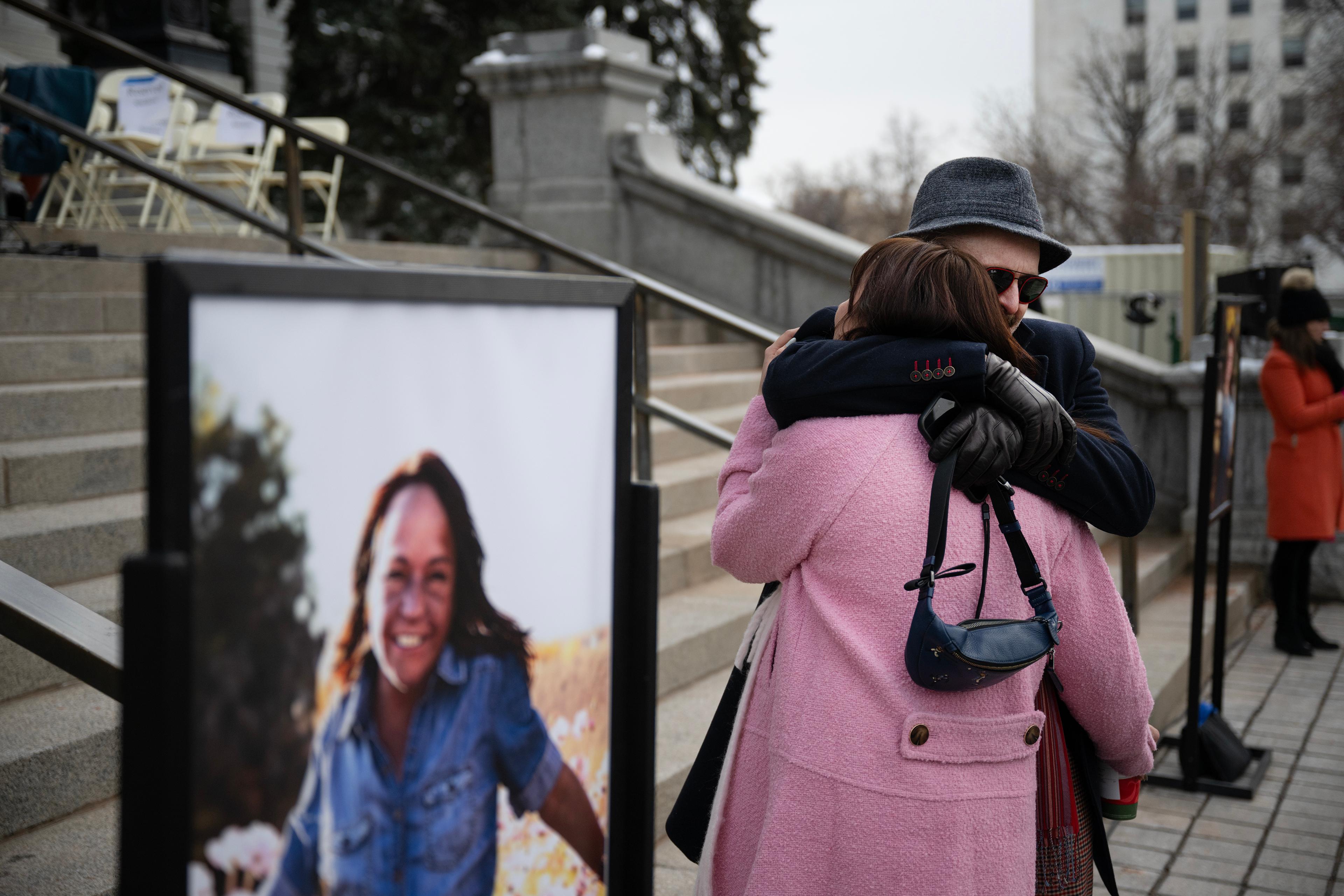
Jim McKinney told me he’s woken to frozen water in the kitchen dog dish only twice this winter. Toward the back of what he calls his “Hobbit House,” where the bare earthen walls are dug down below frostline, he said it never gets colder than 40 degrees Fahrenheit.
“It’s not freezing as long as you’re cuddled up,” McKinney said. “I got my dog and my cat, you know? I don’t know it’s that cold until I get out of bed.”
I first met McKinney last fall, while reporting for a wider CPR News series on housing affordability issues in Colorado. The Hobbit House is the makeshift dwelling he designed when he couldn’t yet afford to build a permanent home on his five acres in rural Park County. Our original article detailing the struggles McKinney faced, along with other low income residents living “off the grid” on small plots of remote county land, resonated with a lot of the CPR audience.
“It would be interesting to have a brief follow-up on how [McKinney is] faring in the winter and if he's been able to make progress on his house-building project,” wrote reader Paul Shannon.
Great idea.
McKinney microwaved me a cup of green tea, powered by the solar panels outside the Hobbit House, a self-contained solar and battery system he calls his “pride and joy.” As we waited for the water to warm, he described the winter as mild overall, with less snowfall than he’s seen in the past. Nevertheless, he said, a couple weeks earlier the temperature had dropped to 30 degrees below zero.
McKinney said his situation is a lot better than for some of his neighbors who live in uninsulated metal trailers out on the flat lands just west of his property. He said many of those people used to live in Hartsel and Fairplay, the closest towns to where the cheapest plots of land are sold in the county. He told the story of one woman who had been renting the same Fairplay home for a decade: She was left stranded when the home’s owners sold it to take advantage of skyrocketing property values.
“Now this person of that community, they get booted, and now they’re out here in the sticks with me,” McKinney said. “These are people that can’t really handle it.”
Following our tea, we stepped outside the Hobbit House so he could show me his progress on the small permanent home he’s building by himself right next to it. On my first visit in early October, he said he planned to be living in the new house by the beginning of the winter.
McKinney, 56, has made clear headway on the raised plywood platform I saw 5 months ago. The stout framing of most of the home’s walls are in place, but the project is a long way from offering any sort of shelter. He said he was hampered by the rising cost of building materials; McKinney lives on about $800 a month in disability payments from the federal government.
“The beams and the substructure and the roof trusses, those things are like $100 a piece. That’s kind of a big expense that’s kind of slowed me down,” he said.
He said he’s also been affected by the country’s persistent economic inflation, which he sees in everything from gasoline prices to the fewer items he can afford to buy at grocery stores.
I followed McKinney into Hartsel so he could buy a couple bundles of wood to feed the large cast iron stove in the center of the Hobbit House. We then stepped into the Highline Cafe & Saloon, where both the bartender and one of the patrons said they also live off the grid. McKinney said it’s where he and others in his situation go to relieve cabin fever.
“It’s almost like church, just coming here,” he said. “Have a cup of tea or a cup of coffee and just, you know, see some people.”
We didn’t have long for that, however. Even though it was still 25 degrees outside, it was getting late in the day.
“As soon as that sun dips below the horizon, it’s zero. And, so you gotta have the fire going … if your body is cold, you’re burning your energy trying to stay warm and it depresses you,” he said. “That’s where a lot of the crap kicks in. So you gotta stay warm and that’s a constant battle.”









